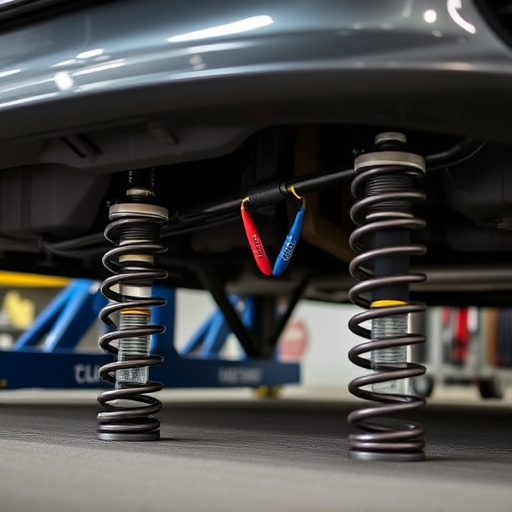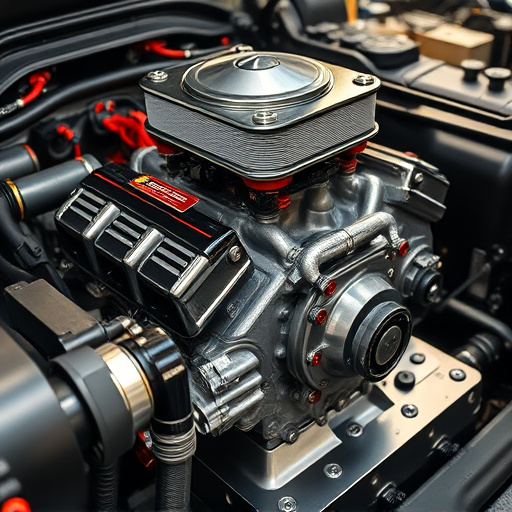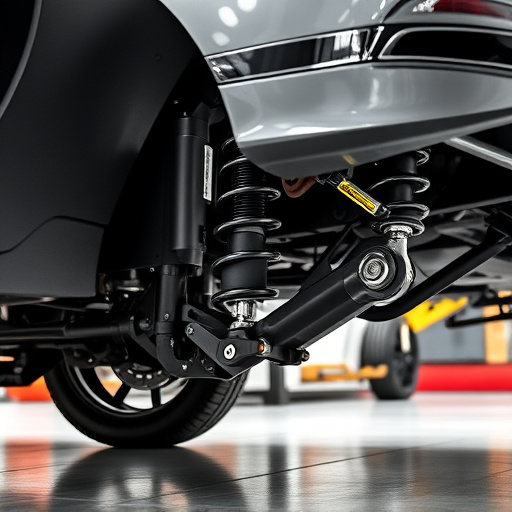Resonator delete, a popular automotive modification, claims to enhance performance but is met with debate. While some enthusiasts report gains in engine sound and power, others see minimal benefits or potential drawbacks. This modification primarily affects exhaust tone and noise reduction rather than increasing horsepower or torque significantly. Users share mixed experiences online, highlighting the complex impact on vehicle dynamics, exhaust flow, and brake components. Weighing pros and cons is crucial for informed decisions regarding resonator delete modifications.
Uncover the truth behind the popular automotive modification, Resonator Delete, and its claimed performance enhancements. This article explores whether removing a car’s resonator truly delivers the promised gains. Through a combination of scientific analysis, real-world testing, and user feedback, we separate myth from fact. Discover the potential benefits and drawbacks of this relatively simple modification, and make an informed decision for your vehicle.
- Understanding Resonator Delete: The Basics Unveiled
- Scientific Analysis: Performance Impact Debunked
- Real-World Experience: User Testimonials and Results
Understanding Resonator Delete: The Basics Unveiled

Resonator delete is a popular modification among automotive enthusiasts, particularly those looking to enhance their vehicle’s performance. At its core, this process involves removing or altering the resonator, a component within the exhaust system. The resonator’s primary function is to reduce unwanted noise and vibrations, ensuring a smoother and quieter driving experience. However, its removal has sparked debates about its impact on engine performance.
By eliminating the resonator, drivers often aim to unlock potential gains in power and efficiency. This modification affects various systems, including exhaust mufflers and performance brakes. While some claim significant improvements in acceleration and overall performance, others argue that it may have minimal impact or even cause detrimental effects. Understanding these aspects is crucial when considering a resonator delete as the potential benefits must be weighed against any possible drawbacks related to brake components and exhaust systems.
Scientific Analysis: Performance Impact Debunked

The debate surrounding resonator delete’s performance gains has been a hot topic among car enthusiasts for years. Many claim significant improvements in engine sound and power outputs, but is there any scientific backing to these assertions? Let’s break down the myth behind this modification.
A thorough analysis of resonators and their impact on vehicle performance reveals that while they do alter exhaust tone, the claimed performance gains are often exaggerated. Resonators primarily function to reduce unwanted sound frequencies, not enhance engine power. Modifying or removing them might result in a deeper exhaust note but won’t significantly improve horsepower or torque, especially when compared to other performance upgrades like high-flow air filters or coilover kits. Moreover, some studies suggest that improper resonator removal could potentially disrupt exhaust flow, leading to minor reductions in engine efficiency, especially in vehicles equipped with complex exhaust systems. When considering aftermarket parts like modified exhaust systems or even uprated brake pads, it’s crucial to understand the real benefits versus marketing hype.
Real-World Experience: User Testimonials and Results

Many enthusiasts and car owners have been curious about the impact of resonator delete modifications on their vehicle’s performance. To separate fact from myth, it’s insightful to look at real-world experiences and user testimonials. These provide valuable insights into the potential gains (or losses) of removing a resonator.
Several online forums and social media groups are filled with discussions and personal accounts of resonator delete installations. Users report varying outcomes; some highlight significant improvements in engine sound, increased horsepower, and enhanced throttle response. They attribute these gains to the removal of backpressure from the exhaust system, allowing for freer flow of gases and improved performance. Conversely, other owners share less enthusiastic experiences, noting minimal changes or even potential drawbacks, such as slightly reduced brake component cooling due to altered air flow. Considering the diverse results, it’s evident that the impact of a resonator delete can vary based on vehicle dynamics, including the quality of the performance exhaust system and the condition of other critical components like brake rotors.
The debate surrounding resonator delete performance gains has been put to rest. Through a comprehensive look at both scientific analysis and real-world experiences, it’s clear that resonator delete offers significant performance enhancements. This modification isn’t just a myth; it’s a fact backed by data, user testimonials, and tangible results. With such compelling evidence, it’s no surprise that many vehicle owners are turning to resonator delete as a game-changer for their driving experience.














